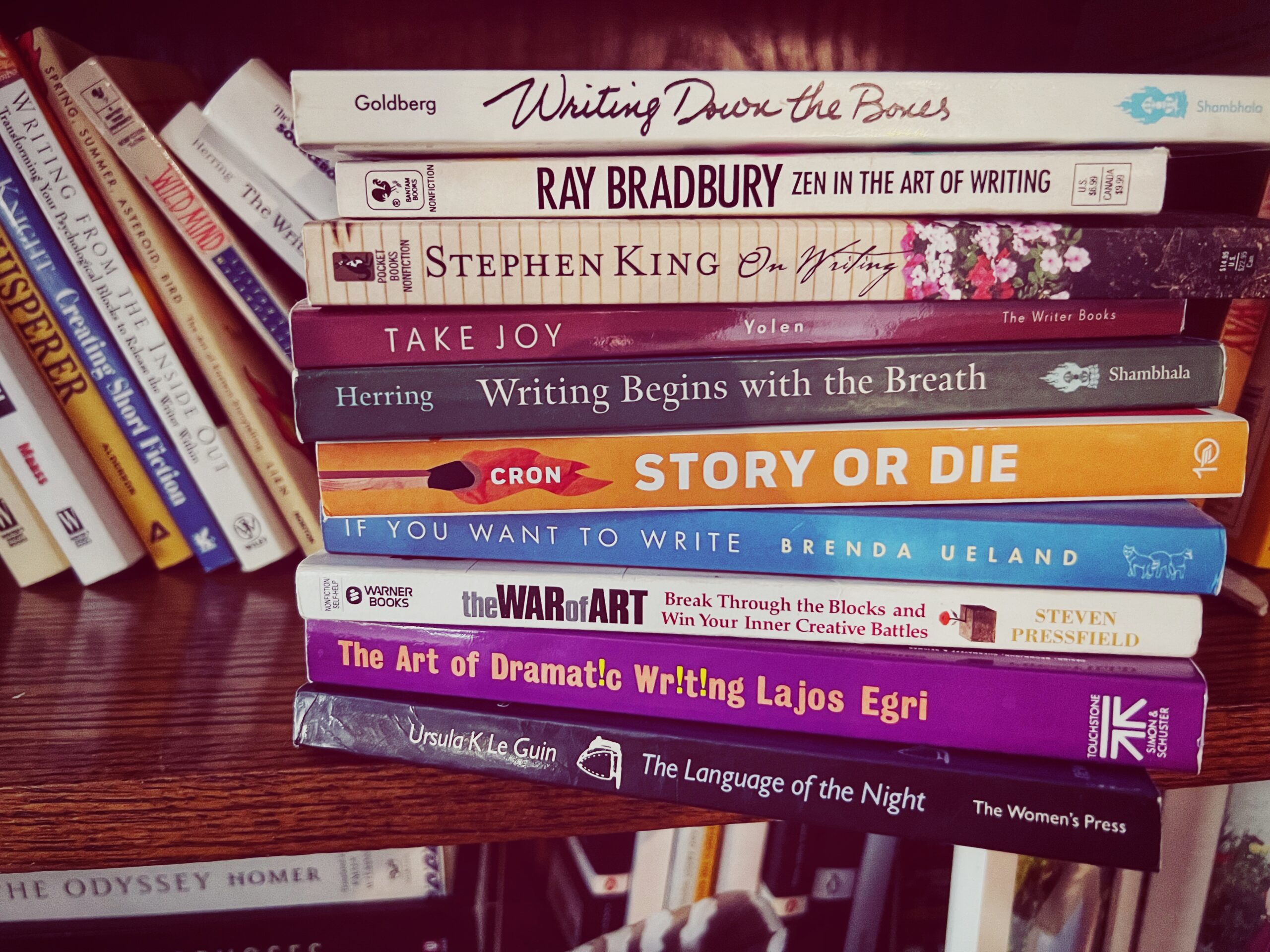
One thing about moving house is that it gives you the opportunity to refamiliarize yourself with all your stuff.
When you live in a place for a long time—decades—you stop really noticing all the things you own. And I’m not just talking about those things stored in the garage or under the bed or in the back of the closet. I mean the stuff that is out in the open. Stuff you you see every day without really noticing it because it’s there all the time, holding space, collecting dust, waiting for a time when you might have use for it again. Fancy teacups. Decorative baskets. Books.
And if you don’t have use for it again … well, moving forces you to confront all those things that aren’t serving a purpose anymore. You have to ask the hard questions. Why do you have this? Will you use it again? Do you still want it, or did you keep it because you’re just used to it being there? Is it worth moving to the new home and making space for it in whatever shape your new life will take?
I asked these questions a lot over the past weeks as we prepared for own move to a much smaller abode. Every item that went in a box for the moving truck was scrutinized for its functional and emotional value. Kitchen utensils were the easiest to do away with, old shoes and assorted craft supplies that have been untouched in years. Purely decorative items were surprisingly the hardest to let go of—they have no function other than to look nice, and they still look nice, so why shouldn’t I keep it?
Books are their own category of consideration. Each volume warrants a complicated calculation that balances its physical weight and presence against concepts like the emotional weight of the time you have spent reading them, the information that you might need to review at some point, the cultural clout of maintaining certain titles in your collection.
A novel by a favorite author? Keep. A Time-Life set that is beautiful to look at but are heavy as bricks and rarely get taken off the shelf? Go. A Penguin classic that you’re probably never going to read again but you want people to know you read it? Keep. The mass-market paperback series you loved when you were 15 but are probably never going to touch again? Go. A recent read that you enjoyed and may want to reread some day? Keep. The non-fiction volume that was once-enlightening but is now outdated? Go.
Which brings us naturally to books about writing.
If you’ve read some of my other essays, you’ll know I have had a tendency to try to solve my writing problems by buying books about writing. (Spoiler alert: that’s not how it works.) So there were a lot of writing books on my shelves that required culling—there were probably more that could have gone but, honestly, letting go of books is painful, even when they aren’t serving a purpose.
However, just like favorite novels, there are some favorite writing books that I imagine I’ll keep around so long as I have bookshelves to store them on. Books filled less with how-to than why. Books that show you how to forge your way through a story even when you don’t have a path to follow. Books that help you help you remember why you want to be a writer in the first place.
Here are some of the favorites I’ve collected over the last 30-ish years that made the cut and taken a proud spot on the top shelf of my (mostly) non-fiction bookcase, along with a bit of the wisdom that makes them so valuable.
Ursula K. Le Guin, The Language of the Night: Essays on Fantasy and Science Fiction
“Artists are people who are not at all interested in the facts—only in the truth. You get the facts from outside. The truth you get from inside.”
Ray Bradbury, Zen in the Art of Writing: Releasing the Creative Genius Within You
“This afternoon, burn down the house. Tomorrow, pour critical water upon the simmering coals. Time enough to think and cut and rewrite tomorrow. But today-explode-fly-apart-disintegrate! The other six or seven drafts are going to be pure torture. So why not enjoy the first draft, in the hope that your joy will seek and find others in the world who, by reading your story, will catch fire, too?”
Laraine Herring,Writing Begins with the Breath: Embodying Your Authentic Voice
“Writing is both an act of power and surrender. Passion and discovery. It is a tug at your soul that continues to pull you forward, even as you go kicking and screaming.”
Jeff VanderMeer, Wonderbook: The Illustrated Guide to Creating Imaginative Fiction
“As much as possible, allow yourself to be a raw nerve end that internalizes whatever is experienced in life.”
Brenda Ueland,, If You Want to Write: A Book about Art, Independence and Spirit
“I want to assure you with all earnestness that no writing is a waste of time—no creative work where the feelings, the imagination, the intelligence must work. With every sentence you write, you have learned something.”
Lajos Egri, The Art of Dramatic Writing: Its Basis in the Creative Interpretation of Human Motives
“A play is not an imitation of life, but the essence of life. You must condense all that is important, all that is necessary.”
Jane Yolen, Take Joy: The Writers Guide To Loving The Craft
“Fiction is like wrestling with angels-you do not expect to win, but you do expect to come away from the experience changed.”
Natalie Goldberg, Writing Down the Bones: Freeing the Writer Within
“The responsibility of literature is to make people awake, present, alive. If the writer wanders, then the reader, too, will wander.”
Steven Pressfield, The War of Art
“The most pernicious aspect of procrastination is that it can become a habit. We don’t just put off our lives today; we put them off till our deathbed.”
Lisa Cron, Story Genius: How to Use Brain Science to Go Beyond Outlining and Write a Riveting Novel1
“We don’t turn to story to escape reality. We turn to story to navigate reality.”
Do you have any favorite writing quotes? Share in the comments!

